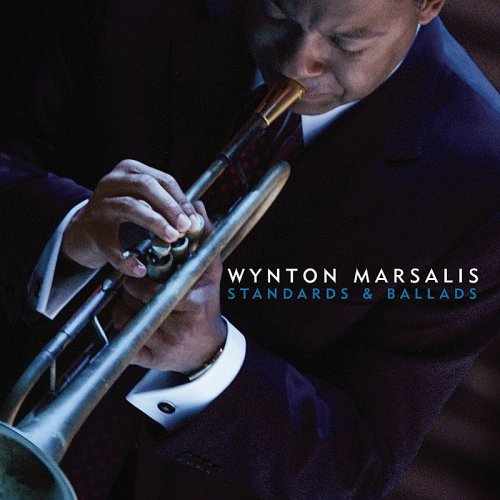Wynton Marsalis - Standards & Ballads

Artist: Wynton Marsalis
Title: Standards & Ballads
Year Of Release: 2008
Label: Sony Legacy
Genre: Jazz
Quality: Mp3 / 320kbps
Total Time: 71:12 min
Total Size: 161 MB
WebSite: Album Preview
TracklistTitle: Standards & Ballads
Year Of Release: 2008
Label: Sony Legacy
Genre: Jazz
Quality: Mp3 / 320kbps
Total Time: 71:12 min
Total Size: 161 MB
WebSite: Album Preview
----------
01- When Its Sleepytime Down South
02- Stardust
03- Embraceable You
04- Reflections
05- After Youve Gone
06- The Seductress
07- My Ideal
08- Spring Yaounde
09- Melancholia
10- Where Or When
11- I Guess Ill Hang My Tears Out To Dry
12- April In Paris
13- Marsalis I Cant Get Started
14- Flamingo
Drawing from previous Columbia albums that were originally released between 1983 and 1999, this compilation serves as a best of collection when it comes to jazz’s traditional partnership with the romantic song. It’s a love-fest. What’s more, trumpeter Wynton Marsalis shares his passion for these fourteen chestnuts with his audience fluently, readily and sincerely.
Whether it’s the open horn on “Embraceable You” with piano trio or the muted Louis Armstrong tribute on “When It’s Sleepy Time Down South,” Marsalis lays it down accurately. He gets his point across. With strings, as on “Stardust,” he’s in ecstasy, just sitting back comfortably and letting the emotion flow.
The trumpeter has been criticized for several decades. That kind of discussion seems to follow fame like a lost dog on a country road. Just when you think it’s gone, you see it again over your left shoulder. Marsalis never deserved most of the criticism that was shoveled his way. Not for his trumpet playing, that is. He remains one of the best there is. Technically brilliant, rich in tone, fluid in seamless transition and conservative in his approach to improvisation, he marks the center of what jazz is.
Whether it’s the open horn on “Embraceable You” with piano trio or the muted Louis Armstrong tribute on “When It’s Sleepy Time Down South,” Marsalis lays it down accurately. He gets his point across. With strings, as on “Stardust,” he’s in ecstasy, just sitting back comfortably and letting the emotion flow.
The trumpeter has been criticized for several decades. That kind of discussion seems to follow fame like a lost dog on a country road. Just when you think it’s gone, you see it again over your left shoulder. Marsalis never deserved most of the criticism that was shoveled his way. Not for his trumpet playing, that is. He remains one of the best there is. Technically brilliant, rich in tone, fluid in seamless transition and conservative in his approach to improvisation, he marks the center of what jazz is.
IsraCloud : Download



![Dino Siani - Mosaico Barocco (2026) [Hi-Res] Dino Siani - Mosaico Barocco (2026) [Hi-Res]](https://img.israbox.com/img/2026-02/20/56itjdvowkeoaf6sr37eyqjai.jpg)


![Bill Champlin - Through It All (1994) [Japanese Edition] Bill Champlin - Through It All (1994) [Japanese Edition]](https://www.dibpic.com/uploads/posts/2026-02/1771699229_ff.jpg)

